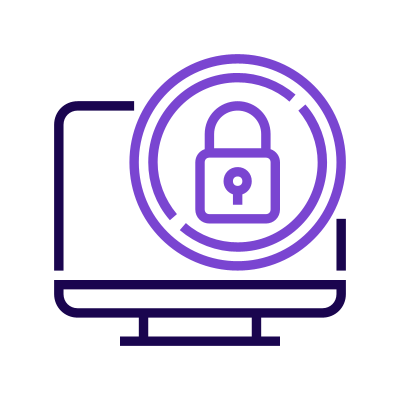Managing a payroll system internally poses many possible obstacles such as backups, security updates and ransomware. Add coronavirus to the mix and you now have a remote worker security challenge to address as well. So, how do you effectively deal with payroll operations and security challenges now and beyond this epidemic?
The Right Technology Increases Security and Uptime
Too many businesses try to save costs by ignoring security risks around payroll and the sensitive information it contains. There are many areas that are neglected as a result, until it is too late.
Let’s take a closer look at specific solutions which cannot be ignored.
1. Continuous User Behaviour Analytics (CUBA)
Under the COVID-19 pandemic, the use of remote systems has increased. It is therefore even more critical to take the time to check who is accessing your systems, when and what data is leaving the system.
Employees working remotely will not only be using the internet through their own or public internet connections, they may be making use of their own devices. Either of these is likely to be less secure than a work connection and computer, which increases the risk that their usernames (in most cases this is your email address) and passwords can be compromised. If these details are acquired by cybercriminals, they can be used to gain access to your payroll and other systems.
By implementing Continuous User Behaviour Analytics (CUBA), inconsistent access patterns can be tracked in real-time and malicious software that are leaking passwords can be detected before damage is done.
2. Enjoy Greater Flexibility And Improved Uptime With Cloud-based Payroll Security Service
With a cloud-based payroll service, you do not only benefit from increased accessibility from internet-enabled devices but your uptime will also be safeguarded by highly effective failover systems.
For example, if the cloud server (or servers) on which your service is running becomes unavailable due to a hardware failure, natural disaster, or is inaccessible due to a DDoS attack, your service will continue almost seamlessly through the failover systems. These failover servers are often located in multiple regions to achieve high availability – a disaster in one region, therefore, does not affect business continuity since the failover server in another region will take over.
These cloud-based applications also provide greater flexibility by allowing you to only pay for what you use.
3. Sign a Service Agreement That Works For Your Business, Not For Your Service Provider
Many businesses sign expensive and excessive service agreements because they are afraid of downtime and the impact it could have on their operations. This fear is often driven by a lack of understanding with regards to exactly how their systems work, and they would rather be “safe than sorry”.
However, the reality is that many organisations only use certain systems during specific periods in the business cycle.
Payroll is one of those departments where 100% uptime is typically only vital once a week or in the final week of the month, and far less important at any other time.
This is why businesses should shift from Technology-Based Agreements, which focus on ensuring uptime of specific equipment, to Business Service Based Agreements, which aim to meet the availability and performance expectations for specific departments. For example, a Business Service Based Agreement can lower costs by ensuring payroll services are operating optimally, only when really needed.
4. Secure Your Payroll
Once you have your digital payroll system up and running efficiently, it’s critical that you know how to secure it.
Apart from the legal obligations South African companies will have once the POPI Act (South Africa’s equivalent of GDPR) comes into full force, it’s important to recognise the responsibility of protecting sensitive employee data.
By switching to a cloud-based payroll service, you are immediately improving the security of your payroll system, because sensitive information is not sitting on a computer that is easily compromised by ransomware.
Trusted IT Cloud Service Providers are invested in servers with the strongest levels of encryption technology and ensure servers are always running the most secure and up-to-date version of the available software. Rigorous backup protocols are followed, updates are applied painlessly, access attempts and data leakage are monitored, keeping you compliant at all times.
Servers and workstations maintained by individual businesses most likely do not have the same level of protection, which is avoided by using the up-to-date cloud hardware and software provided by a cloud provider.
5. Better Return On Investment
With cloud-based payroll, there are no in-house servers to buy and maintain, no physical set-up to accomplish and no upgrades to purchase. Businesses save both on initial and recurring expenses.
If you’re looking for help with the implementation of a new cloud-based payroll system, an upgrade of your existing tools, or with assessing the security of your payroll processes, reach out to us at Evolv Networks.
ENHALO (PTY) Ltd is a Level 1 Empowered Supplier and South African IT Service Partner, founded in 2005. We understand the powerful role technology plays in growing your business, and we have the expertise necessary to implement real change in order to achieve your goals.







